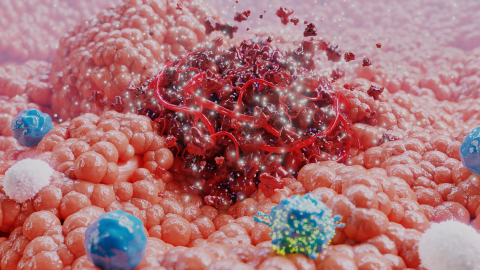This Startup is Making a Cancer Vaccine out of Viruses

Published @ Labiotech.eu, 27/03/2020
Valo Therapeutics is operating both in the UK and Finland to develop a cancer vaccine based on a virus designed to kill tumors.
Mission: To combine two different immunotherapy techniques — oncolytic viruses and cancer vaccines — into one treatment for solid tumors.
Immunotherapy has transformed the cancer treatment landscape, offering therapies such as checkpoint inhibitor drugs and CAR T-cell immunotherapies that have the potential to cause remission in certain types of cancer patients.
According to Michael Stein, CEO of Valo Therapeutics, however, immunotherapies are still very limited regarding the range of cancers they can treat — approved CAR T-cell therapies can’t treat solid tumors, for instance — as well as the number of patients that can benefit.
“Whilst there has been terrific progress, well over 75% of all cancers are not yet curable,” he told me. “For example, checkpoint inhibitors are effective in about 15-20% of patients; mainly where patients have pre-existing immunity to the cancer.
“Even where there is a dramatic response, it’s not yet clear how long the response will last without further treatments.”
Based in both Oxford and Helsinki, Valo Therapeutics was spun out of the University of Helsinki in 2017 to develop a therapy to treat cancers beyond the reach of current immunotherapies. The founder, Vincenzo Cerullo, was also inspired to found the company when his own son recovered from a rare form of cancer.
The company’s treatment is based on viruses, called oncolytic viruses, which are designed to infect and selectively kill cancer cells. When oncolytic viruses infect tumor cells, they can also attract immune cells to the tumor site and sensitize the immune system to the cancer, like a vaccine.
To boost the ‘vaccine’ effect of these viruses, Valo modifies them to carry tumor cell fragments that the immune system can recognize.
Several other companies are also developing oncolytic virus cancer vaccines, such as the French firm Transgene, the Swiss biotech Nouscom, and the US companies Turnstone Biologics and Profectus Biosciences.
According to Stein, one of the important differentiating factors in this field is how adaptable the technology is.
To view the full article, click here.

